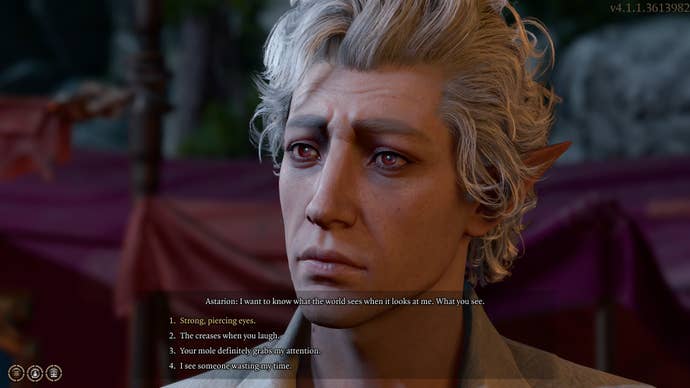Project managers say companies fear visibility on staff being poached, pay being shared.
But why does this happen?
It should be simple, right?

“That finally got me recognised.
“These people are just looking for a way to build a portfolio,” they continued.
Thus, credits remain the most reliable form of demonstrating expertise.”

“As a company, we’re not always in the credits.
And then secondly, it’s not always easy for us to put freelancers in the credits.
What difference does being named in a game’s credit make?

So why don’t companies like Altagram do more to push for localisation staff to be credited?
Speaking with those with knowledge of the issue, two key concerns are frequently raised.
“There’s also a fear that translators will be poached by other LSPs.

And both of these concerns are real - they do happen.
But for me they’re still not reasons to not credit people for their work.”
I put both of these concerns to Altagram’s CEO.

And it’s not only freelancers, it’s vendors, studios, voiceover studios.
And most of the vendors have this issue.”
We are in an industry, it’s super competitive.
Translation is a commodity, even though the people are very skilled.
There’s so much work to be done to make it work well."
“Still, we need to put all names in the credits,” she concludes.
“All names.”
So what did happen with Baldur’s Gate 3?
“We were working on that change of code of ethics about the situation.
And we said - let’s give you the list of names later on.
It was really crazy for the project managers.
So we actually - everybody forgot about it.
And that’s the reason.
That’s the only reason, and we didn’t have the intention to not give the credits.
It’s been two years and a half, and 2.6m words localised.
It was a crazy project.
But yes, it was a huge omission and we really regret it.
“It’s a very unfortunate situation and it’s put us in the spotlight.
I never anticipated this could actually happen.
But I appreciate we even have the opportunity to talk about it.”
What do others at Altagram have to say?
“But I was not surprised to see them called out.
It’s something that was discussed often - and always shut down pretty quickly.
The least we can do is credit people for their work.”
In the past, people would not have noticed.
“It’s good to see that things are beginning to change,” they said.
“This is changing now with LinkedIn and Twitter hashtags demanding people credit translators,” another agreed.
There’s a clear passion in the company for the games people work on.
“We’re still just in the middle of this.”
“Policies may not take into account live service games or things like that.
“Publishers and developers definitely share some of the responsibility here,” localisation specialist Diego Perez agreed.
“They have all the power in this situation, for better or worse.
They get to choose how to act - and also how much to pay.
They get to pick the awful timelines and demands that exist.
There’s more they can do to be responsible for ensuring translators are credited.”
“The ball needs to start in the developer and publisher’s court,” Fares agreed.
“They need to get their shit sorted and have a policy.
Because otherwise it’s a joke.”
“It’s something that is changing,” she says.
But there are policies that are not always easy to change.
And we know that - if it was simple, everybody would have names listed.
It’s complicated - who’s been working, how long, how much?
But I believe it’s going to change.”
And this is where the IGDA hopes to step in.
So that didn’t answer [the issues for] freelancers being paid by the hour.